|
Please welcome the wisdom and kind words of Ruth Kennedy, an inspiring and beloved retired teacher from Halifax, Nova Scotia who conducted this interview with us on June 25th, 2016 at the age of 98. We were beyond thrilled and humbled by hearing her speak of her experiences and share with us her advice. This is only a sampling of the amazing conversations we had that evening and the feeling of enlightenment and joy we felt afterwards, learning from our past and planning for the future. An amazing woman whom so many lives have been touched and bettered, we can only hope to have made such a mark on this Earth as she.
Tell us a bit about yourself. Who is Ruth Kennedy? Well, Ruth Kennedy was born in Halifax city, December 23rd, 1917, about 17 days after the Halifax Explosion. The city was in chaos and the homes were boarded up. I was born. I was born in an apartment on Barrington Street, near the Capitol Theatre and the Green Lantern. My father was a Barber. My mother never went to out to work at that time, she was married, but before, they met in Truro, she worked at Stanfield’s Factory, and was in charge of decorating ladies’ hats, as she was very artistic. I was one of those bold and daring people who tried everything, and found out there were some things I couldn’t do, and some things I could, but I did the things I wanted to do. I swam, and when the need arose to have a lifeguard, I thought I’d try, so I tried, and I got it! I went skiing, I liked to go out on the boat, hike, camp outdoors, any activity I tried. I became involved in the Girl Guide movement and that became one of the big things in my life because I enjoyed the challenges that they offered and prepared you for later in life. Also, when I was about 5, I started piano lessons, and later moved onto the Canadian Conservatory of Music. When I started piano, I couldn’t get home fast enough to open my book and play, even if I didn’t know them. It was something I really liked. I was a bossy child. Always bossing other children around, trying to teach them things. It was never a question in my mind, I was going to be a teacher and that was that. How did you become a teacher? In earlier years, people sometimes went to teacher’s college on a grade 9 or 10 because they didn’t have enough teachers. But as the quality improved, you had to have your grade 11 or 12. I went to Teacher’s College in Truro after completing grade 12. At that time, they worked you so hard that you were up to 2 or 3 o’clock in the morning trying to finish the work that had to be done. They realized that teacher’s college would need to become like an ordinary college, four-year course, because they were cramming too much into the one-year course that we had. You worked day and night. We had to make everything you had to work with! I graduated in ’38 with an ‘A’ teacher’s license. In order to teach in the city, I had to have 1 year of teaching in the country. Having been brought up in Halifax, with 30 or so kids in a classroom, I was now going to apply for a school that had grades Primary to grade 10 in one room, maybe 20-30 kids. I sat down with a list of schools and picked out ten names, and sent out an application to those 10. I got an answer from Seaforth, just outside Dartmouth. I drove down to see it and it looked like a barn! It wasn’t painted, shingles not looking good. Toilet out back, pot-belly stove in middle of room, and a container for cold water that they give you from the well for drinking water during the school day. What was it like to teach in a one-room school house? In the one-room schoolhouse, there were windows on one side, black board on one wall. We’d start at 9 o’clock in the morning; lunch an hour at noon, done at 3:30 in the afternoon. Your school yard for playing; there was no equipment to play on. It was up to you what you did. I was just the children and I. We all went home for lunch. The school was close in the community. In the classroom, the first thing you had to do was group them two or three grades together. Looking back, and how rare it is to teach multiple grades today, at the time, we felt it was the only way you did it. It meant you grouped children based on ability. You could give more help to some and challenge others. You could give more to what each student needed. That was the way it was. It wasn’t really a hardship. Children were exposed to things that they may not see for another year or so, but they were getting repetition for a couple years, so by the time it came time to learn it, they already knew something about it. Children helped other children. Grade 6 would work with one group, or grade 4 would go read to another group. They’d share things together. Children would realize that there was a responsibility for caring about someone else, finding a way of helping them. Those things just spontaneously came out of the whole thing. I did have the greatest fun going to the dances in the community and I met a lot of people. The kids there wanted to put on a Christmas concert, we had no piano or anything, so I bought an accordion and we fixed up curtain using wire and a sheet along the stage, which was a platform in the classroom for the teacher’s desk. The kids and I had a wonderful time. The adults in the community, they decided we’d put on a play. We travelled around and performed for the community. That was in the country in ’39 and I was quite enjoying myself! Why did you resign only a few years into your career? I had started teaching in the city, in Chebucto School for a while and then down to Market Street, Acadian school attached to the old Halifax Academy. Now, at that time, there was a stipulation that in Halifax, if a woman married and her husband had a job, she couldn’t teach any longer. I was planning to marry, so, I had to resign at the end of the school year. I got married on August 2nd, 1942, and when I got back from my honeymoon, there was a nice letter from city school department advising me that they had just had a meeting and changed their laws and they were now accepting woman who’s husbands had jobs because they didn’t have enough teachers, would I please come back to teach? Well, I had already resigned, so I took a teaching job at a new school, Bloomfield School and then tossed around at some other schools until eventually I went to Sir Charles Tupper where I spent my last 12 years of teaching. How did your career change over the years? In many ways, I felt, as time went along, things got a lot easier than when I first started. I had people suggesting things, giving me information. Before that, I had to dig it out my own head! Back then, I didn’t have all the books, the libraries, teachers getting together sharing things and ideas. What experience made you change the way you taught, your thinking about teaching? Really, as I was going along, change was coming all the time. The more experience you got, you began to realize that there was a better way of doing something, or an easier way of presenting it. I would read a lot to find out about ideas. Continually learning, continually changing. Was there ever a moment that you wanted to walk away from teaching altogether? Many times I felt that I wasn’t doing the job I wanted to do, but I don’t think I ever got to the point where I would walk away from it. I would just try another way of getting around it. You meet all kinds of children, and sometimes you have situations with parents that make it very difficult to do what you want to do. I never felt that I could walk away from it. I felt I had to overcome and work it out myself. How do you feel children learn best? Children learn from example, they have to be doing something. It’s by doing it that you get the true experience of how to do something. Just talking about it and reading about it isn’t going to consolidate that into their minds. You’ve got to be involved. It’s not long before you size up, figure out how each child learns and you have to think about all the different ways you can do things. I can remember one time I had a little boy, he just could not figure out how to add 4 numbers together. I gave him a blackboard space and chalk, and he’d have the whole board filled up. He’d figure it out on his own. The rest of the children weren’t paying attention to him. And how great he felt, how proud of himself he was to think that he got something right. He may not have been doing the work the rest of the kids were doing, but he was learning something! He was learning it by himself with that bit of extra help or different way of doing things. What are your thoughts on class sizes? When I first started teaching, I had 19 children in the barn. When I went to school as a child, I had about 50 kids in a classroom. Later on I sometimes had 40 or 50 children. As teachers, we always felt that we weren’t doing what we wanted to do, with so many students in the classroom. ‘I’ve got a classroom here and everyone of them could use some extra help’, I would tell my principal and suggest solutions to dividing curriculum and classes. ‘Come in and observe me, for a week and see what you think’. Teachers need to be outspoken to make a change. What do you think about outdoor and life skill education? Outdoor education is very necessary in your life. How to make a cup of tea, start a fire. These are the people that when there’s a disaster, they’re the first ones who know what to do. It’s stupid to think you can face life without having any of these skills. What is your opinion on the reports of high levels of stress and anxiety in teachers and students today? I feel that everyone’s trying to be the top and best at everything, to want the most of everything but they don’t always give the most from themselves. You have to be willing to really work at it and stick with it. You have to also be able to say there’s only so much you can do. And be okay with that. It’s better to stay at a certain point and excel at that, instead of piling things on. The world is like a button today. All you have to push it and sit back and everything will revolve around you. Where we had to pick up the plow, or ax, or shovel and get out and dig, or rake, or pull. We made things. You didn’t buy it. Today, there’s no input of yourself into anything today. There's no humans involved, there’s hardly a skill anymore. That’s not good. Everyone feels pride in themselves when you’ve done something, make something and use it and it works. But when you just press a button, what have you got for pride? There’s no initiative to be creative or to do anything. Too much time on our hands to do nothing. If you could just give one bit of advice for teachers today, what would it be? You’ve got to be very inventive in your own mind, with everything you read, how can I apply this to everyday life. If you just read something to read it you’ll get nothing out of it. Make it worthwhile in your everyday life. Any child has the ability, with nourishment, to be something. They need a pat on the back to find out what that little thing is that they have that needs to be nourished. Each teacher has to look for children to find out what it is that’s buckled up inside of them. Everyone has something.
0 Comments
Let's go down memory lane for a moment here... Images of kids running out of school, throwing their school work into the air as summer vacation begins. You may even start singing Alice Coopers 'Schools Out' song -- No more school, no more home work, kids get to do what they want for two months! Wahoo! Remember those days? Carefree summers of playing sports, playing with friends, and going on vacations. Boy oh boy, those were the days! We want to help make sure that those memories of fun summers continue on.. Don't let the words summer slide, brain drain, summer learning loss, make you think that it's impossible for your child to have an enjoyable summer and keep up their skills at the same time! Yes, the studies can be a touch shocking when they are reporting that in the summer kids can lose about one month of overall learning, two months of reading skills, and that teachers can spend up to six weeks re-teaching old material that was lost in the summer months. It sounds scary and alarming. We know. But don't despair! And definitely don't buy those curriculum activity books just yet! It's actually a lot easier than you think to keep 'em smiling and skilled in time for September. Enjoy those precious months of sunshine, warmth and family memories. They're worth more than anything else! You don’t have to sacrifice your summer plans in order to keep your child’s skills sharp. Five Ways to Boost Summer Learning While Still Having Summer Fun Keep them reading Everything in this list is helpful, however if you only have time to do one thing, do this. Reading feeds into nearly everything else, is one of the most practical and useful skills, and it can be done anywhere. Read to them, have them read to you, read signs, newspapers, road signs, menus, instructions, anything, story books, chapter books, comic books, anything. Anything that comes up and is of interest, take it! Reading for 20-30 minutes at bedtime, in the car, all at once or throughout the day will help your child to continue to expand their vocabulary, grow their knowledge and questions about the world, and will help keep their academic skills progressing. Let them experience real life mathematics Plan a budget for a weekend camping trip and shop together. Read maps, figure out distance and time, divide food equally, follow recipes, measure ingredients, figure out money spent and change. Get them using their math skills in real life situations as often as possible. This will help reinforce what they’ve learned, help them make a connection (maybe even question!) how to do other skills and can bring real value to practising math skills. Ask them as many questions as they ask you If you're planning a trip to the zoo, do some research ahead of time to learn more about some of the animals and where they came from. If you're heading to the beach, look up some strategies on how to make a drool-worthy sandcastle. Ask them, 'Why do you think that?" "How does this work?" "Where would we find out that information?" Get them thinking about the world around them, but more importantly, instil the idea that they have the power to learn to about the world around them. All they need is an interest, a question, and someone like you to help them out. Keep them active and outside To keep the mind sharp you have to make sure the body is staying active. Try new activities! Go for a hike! Spend the day at the beach! All of these things keep us moving, keep us exploring, teach us new skills, and inspire our whole bodies to grow. Let alone the memories you'll make! Maybe even give logrolling a try! Try something new this summer. There are so many things to do outdoors and many of them are free or cost very little. You never know, a new family favourite activity could be discovered! Have fun and let children be children
Let's be honest, the summertime is supposed to be laid back and fun. The last thing we would want to suggest is that you take all the fun out of it by over-planning or overdoing it on any end. Life truly is about balance. With all of our suggestions above try to incorporate as much excitement and ‘fun’ into the activities as possible, but also remember to relax and let the moments happen on their own. Learning honestly is so natural, that if we push too hard, we can take all the fun out of it to begin with. Children naturally want to learn about the world, but will take in more and make something of what they've learned if they get to experience it, usually, on their own terms. So, let them run. Let them play. Let them explore. Let them ask questions. Let them experience summer. Be sure to follow Via Vita Academy this summer on Facebook and Twitter. Every Sunday, we’ll set a new weekly Summer Brain Gain Challenge to encourage everyone to have fun while learning this summer! Think of all of the people involved in your child’s education. All of the people who interact with the hopeful and impressionable young minds of children like yours. Children who are seeking knowledge, understanding, and a place in the world. All of the adults who have invested in shaping the future through working closely with children and families. All of the adults who influence, teach, question, enable, support, and model. Everyone has a role, a job, and a responsibility along the path of your child’s education. The power people have is immense. We can sometimes lose sight of who and how the people in your child’s education play a role and make a difference. The power of people, the real heart of education as a whole, can truly make an educational experience worth it. The Teacher: Professional. Experienced. They spend copious amounts of time with your child outside of home. They see your child grow, expand their mind, interact with their peers, make choices, and develop their self identity. They can provide a unique out-of-the-home perspective for how your child thinks, sees, acts, and grows. They see your child for who they are away from their parents, away from their siblings, away from their home. Teachers have the power to help shape their social interactions, how to learn from others and make meaning out of mistakes. They can help your child safely make decisions to try new things. They can be a trusted adult who truly wants them to grow up into a respected, responsible, successful and smart individual. Their power is immense and direct. Their words, actions, reactions, and choices directly influence how a child sees themselves, treats themselves, and carries themselves in a room filled with peers. The connection they have with your child can last for years, directly impacting how they think for themselves. The Family: Innately connected. Home. Continuous love and support. Having a shoulder to cry on. Experiencing and learning life’s toughest lessons. Comfort. Ownership. Nourishment. Relationships with young and old. These values are just some of the foundations to growing, to building a life, to helping a child become a strong, confident and moral individual. Parents and families have the power to create individuals and support them through the trials of growing up. To pass down stories and values. To build tradition, belonging, culture, family and individuality. To play with, explore the world with, and provide experiences that help shape their understanding of the world. Families can provide experiences that nourish their minds and hearts. Experiences that they can build upon, use to make sense of and solve complex problems. Experiences that spark an interest, enrich a conversation, provoke questions. Experiences that can help them connect to others, to stories, and to the world. And experiences that engage them, fill them with wonder, with ideas, with enthusiasm, with gratitude, and with a motivation to try new things. Families have the power to build lifelong learners and create individuals who will make lasting impressions on our future. They have the power to be an advocate, a voice, or a support to help their young child find their own place in the world. The School Administration: The connection between families and teachers. Professional. Caring. Supportive. Resourceful. School Administration have a unique and impactful power as the voice for everyone involved. They have the power to communicate, share, respond, connect, and enable. They can create pathways for a child’s education. They can directly influence a child’s understanding of the world as it grows bigger. Their words, actions, reactions, supports, and the way in which they respond to others or respond to them directly influences how a child sees themselves within the whole school, the world outside of home. They have the power to connect everyone involved, share information, and create an openness for progress. They have the power to make the connection between home, school and community stronger, directly influencing a child's love for learning and safety within a school. . The Peers: Where you fit, where you don’t fit. Values that matter to you, values that don’t. Making friends, losing friends, building friends, compromising, sharing, criticizing, listening, talking, independence, loneliness, company of others, helping, role modeling, leadership, empathy - all of these experiences in education that significantly help shape who we grow up to be would be difficult to learn without peers. Learning through hands on, in your face moments that require you to learn about who you are and who you want to be. Emotions, actions, words – the power peers play in a child’s life prepare them to learn more about themselves than any adult could ever instill. The good and bad moments of growing up and learning from peers prepares a child for a life of honesty, strength and resilience. This role, like all others, is powerful and influential. Perhaps even more than we may want to admit. The Community: Young and old. Rich and Poor. Sick and healthy. Trees, parks, picnics. Buildings, streets, cars. Neighbours and strangers. A community has the power to shape an understanding about how the world works and how your child fits into it. A community has the power to instill value in learning, in sharing, in respecting, and in supporting others. The way in which a community engages with a child’s school, their classes’ initiatives, their shared successes and achievements has an influence on whom a child grows up to be. Recognition in a community has lasting effects, a sense of belonging to something big, a larger connection to preserving, living, and respecting the way in which others live. Respect for individuality, to appreciating diversity, and cherishing the wisdom of other’s experiences. The power a community of people has in a child’s education is far greater than we give credit to. And to that end, we need to remember that we are all part of a child's school community. Each and everyone one of us. We all have a responsibility to uphold. The power people have in a child’s education is immense and far-reaching. We all have a role. We all have to share the responsibility and step up to the challenge. Whether you are a parent, a teacher, a community member - we are the heart of raising successful, healthy, strong, and independent individuals. Children growing up around us today are in need of our support, our role modelling, our care, and our wisdom. It’s far too easy to lose sight of just how powerful our role is.
|
Welcome to Our BlogEach post is written by a supportive member of Via Vita Academy, be it a teacher, parent, student, community member, who is invested in the topic of education. Take a read and comment below! Archives
February 2022
Categories
All
|
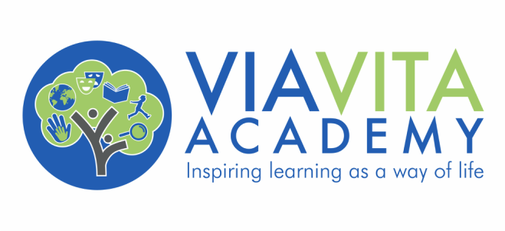
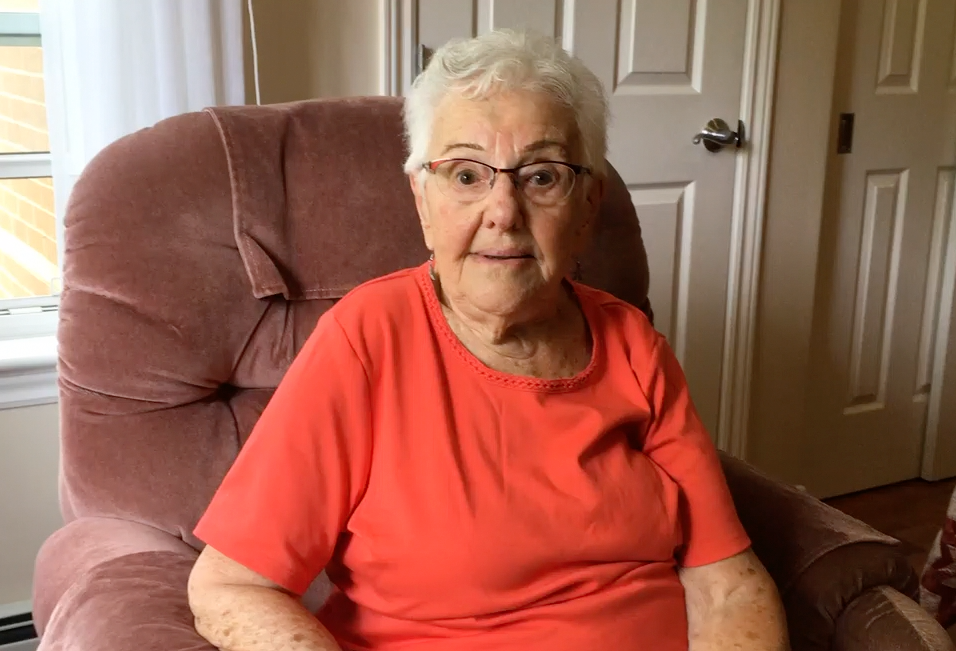

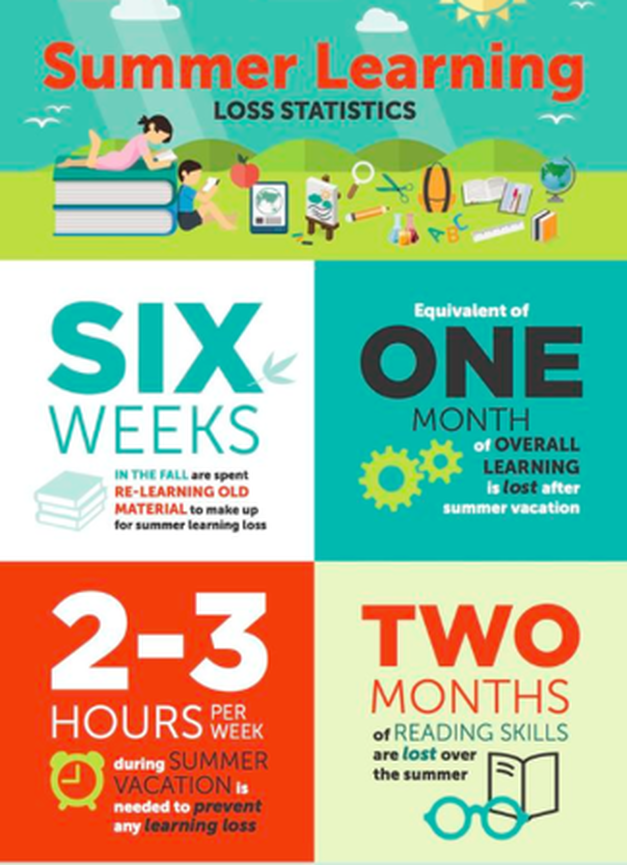


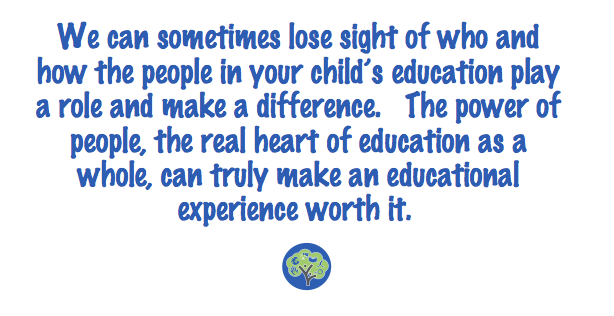
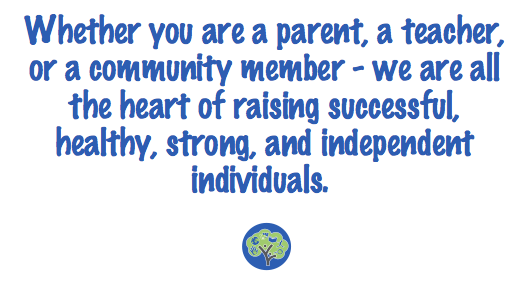
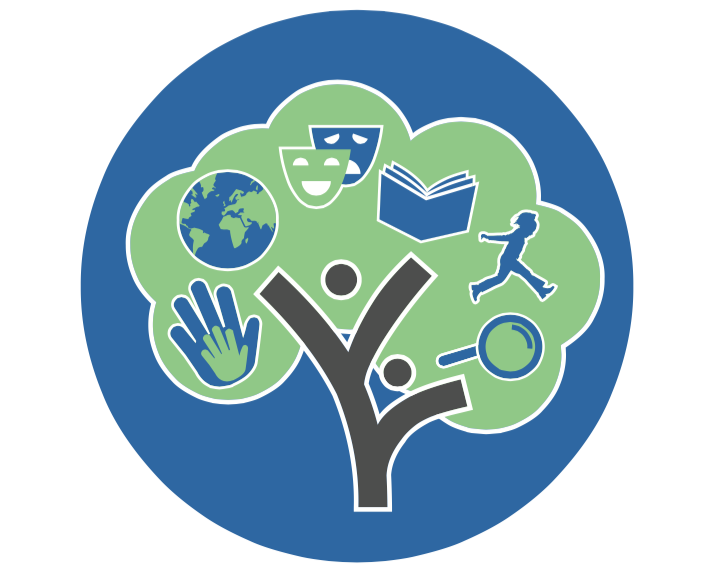
 RSS Feed
RSS Feed